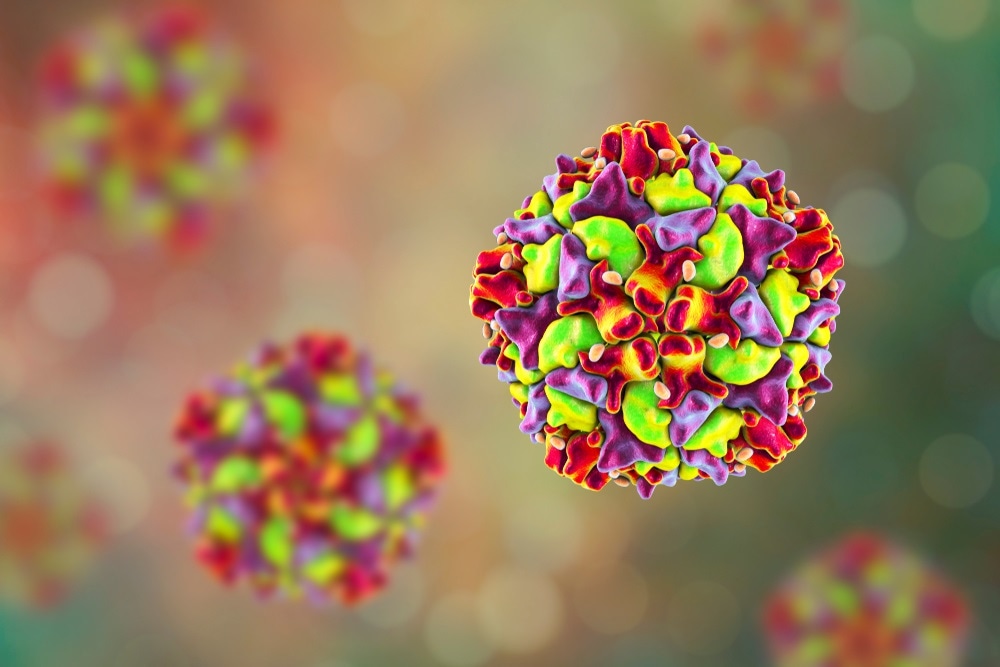
Malaysia health officials have reported the first case of polio in the country for 27 years. They announced on 6th December that a 3-month old boy from Tuaran, Sabah, has been diagnosed with vaccine-derived poliovirus type 1 (VDPV1).
The baby was admitted to an intensive care hospital after developing a fever and weak limbs. According to Malaysia's health director-general, Noor Hisham Abdullah, the boy is in a stable condition but still needs respiratory assistance.
About polio
Poliomyelitis, or polio for short, is a highly infectious disease that affects the nervous system and can cause irreversible damage to the spinal cord. In some cases, the illness can be fatal. There is no cure for the disease, and it can only be prevented with oral and injectable vaccines.Typically, the virus is spread through contact with the stool of an infected person. It spreads quickly among children, particularly in unsanitary conditions and in war-torn regions where access to healthcare is limited.
Over the past thirty years, the world has made great progress in tackling polio, and the World Health Organization (WHO) says only 33 cases were reported globally last year.
First polio case in Malaysia since 1992
Malaysia was declared polio-free in 2000, and this is the first polio case reported in the country since 1992.According to a validation test by the WHO Polio Regional Laboratory in Australia, the virus is genetically linked to the poliovirus detected in the Philippines just a few months ago. The case in the Philippines, which shares a border with Sabah, was the first in the country since 1993.
A survey of polio-infected children in Sabah, which has been conducted since 5th December, has shown that 23 of 199 children aged under 15 years who live close to the infected boy had not received a polio vaccine.
This is a frustrating situation because the spread of the disease... can only be stopped with polio immunization...This first case probably is the tip of the iceberg. There is a very high possibility of a rising trend."Given the importance of polio immunization, the parents of all the children included in the survey have now agreed to be given a polio vaccine.
Noor Hisham Abdullah, Malaysia's health director-general
Public health expert T. Jayabalan says he is not surprised by the outbreak because immunization against diseases such as polio is not mandatory in Malaysia. Several children have recently died from diphtheria because they were not vaccinated against the disease.
Jayabalan says that some individuals refuse to be vaccinated due to misinformation leading them to believe that immunization is hazardous and dangerous. Vaccination activities and monitoring will be carried out to try and contain the spread of the disease, he adds.
What are VDPVs?
The Global Polio Eradication Initiative says VDPVs are rare strains of polio that have genetically mutated from the strain contained in the oral polio vaccine. This vaccine contains a live, attenuated (weakened) form of the virus. Once a child is vaccinated, the weakened virus replicates in the intestine and then enters the bloodstream, which induces a protective immune response."Like wild poliovirus, the child excretes the vaccine-virus for a period of six to eight weeks. Importantly, as it is excreted, some of the vaccine-virus may no longer be the same as the original vaccine-virus as it has genetically altered during replication. This is called a vaccine-derived poliovirus," explain experts involved in the eradication initiative.
What is the situation now?
The Malaysian health ministry is now trying to contain the disease and is urging parents to have their children vaccinated to prevent it from spreading.Authorities have also increased the monitoring of acute flaccid paralysis (AFP) cases, which is a common sign of acute polio.






No comments
Post a Comment